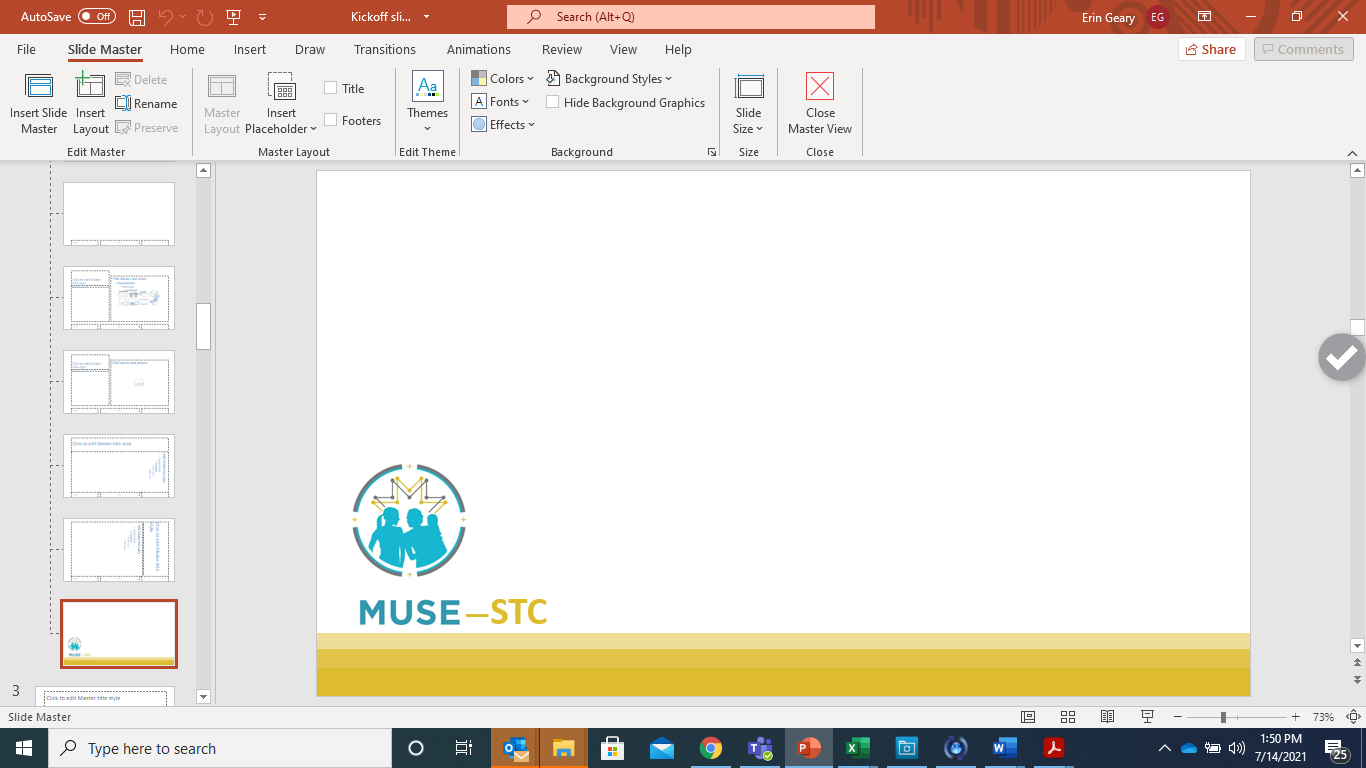APPENDIX D: MUSE-STC Research Flyer
Appendix D - MUSE-STC research flyer_OMB_clean.docx
Formative Data Collections for ACF Program Support
APPENDIX D: MUSE-STC Research Flyer
OMB: 0970-0531

Multi-site Study of State-Tribal Collaboration in Home Visiting
What is MUSE-STC?
MUSE-STC, the Multi-Site Study of State-Tribal Collaboration in Home Visiting, is a research study funded by the Administration for Children and Families, Office of Planning, Research and Evaluation (OPRE) in partnership with the Health Resources and Services Administration (HRSA). The aim of the study is to explore the collaborations between MIECHV-funded state awardees and tribal communities and their influence on planning and implementation of home visiting services for American Indian/Alaska Native (AIAN) families.
MUSE-STC is a qualitative case study design that will answer the following research questions through interviews with key awardee and local program staff.
What do MIECHV awardees and tribal communities consider when deciding whether to partner?
How are partnerships between MIECHV awardees and tribal communities established?
How are partnerships between MIECHV awardees and tribal communities structured?
What are the markers of a well-functioning partnership between MIECHV awardees and tribal communities?
How are these partnerships functioning during planning?
How are these partnerships functioning during implementation?
What are the facilitators and barriers of well-functioning partnerships?
What are the benefits and drawbacks of these partnerships from the perspective of MIECHV awardees and tribal communities?
What is a case study? A case study design focuses on understanding an individual concept or entity (in this situation, partnerships between awardees and local home visiting programs serving tribal communities) through close examination. For MUSE-STC, partnerships between awardee agencies and local programs were identified as the focus of this study to represent the diverse and complex way in which MIECHV awardees and local home visiting programs partner in providing services to AIAN families.
Who is conducting the study? The study is being conducted by James Bell Associates and the University of Colorado, Denver. The Study Team has extensive experience conducting home visiting research and research in partnership with tribal communities.
Who is invited to participate in interviews? Program staff within awardee agencies and local home visiting programs serving tribal communities. Multiple staff at each of these agencies who are knowledgeable of the partnership will be invited to participate.
What will the interviews be like? Each interview will last up to 90 minutes and be conducted virtually over zoom. Interviews will be conducted by trained researchers from James Bell Associates, the lead for this research. Each researcher will be knowledgeable about your program and home visiting. Interviews will focus on three main areas related to the research questions above: how the partnership was planned and built, how it is structured, and how it functions.
Will my information be kept private? Yes. Both the agency and your identity will be kept private and not included in any written reports. If you are interested in participating, the interview process will begin with an informed consent conversation which will clearly lay out how information will be kept private and any risks and benefits to participating in the study.
Will I be compensated for participation? Yes, all interview participants will be offered a $75 honorarium for their participation.
Who reviews and approves this study? This study has submitted for review and approval with the Colorado Multiple Institutional Review Board (COMBIRB) within the University of Colorado, Denver, and the Office of Management and Budget (OMB). In addition, our team will obtain approval from each agency participating in the study, including relevant tribal research review boards, before beginning data collection.
How do I get more information? Please email [email protected]

| File Type | application/vnd.openxmlformats-officedocument.wordprocessingml.document |
| Author | Tess Abrahamson-Richards |
| File Modified | 0000-00-00 |
| File Created | 2023-09-12 |
© 2026 OMB.report | Privacy Policy